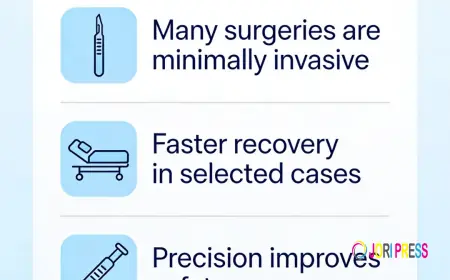Understanding the Cost of Allergy Testing in Dallas: What You Need to Know Before You Book
This blog will break down everything you need to know about the cost of allergy testing in Dallas, the types of tests available, what affects pricing, and how to find a testing solution that fits your needs and budget.

If you’ve been struggling with persistent allergy symptoms—itchy eyes, congestion, unexplained rashes, or recurring headaches—then allergy testing Dallas is likely on your radar. But before booking your appointment, you may be wondering: How much does allergy testing cost? Is it covered by insurance? Are there different prices for different tests?
These are common—and important—questions. Understanding the financial side of allergy testing can help you make an informed decision about your health without surprises later on.
Why Allergy Testing Matters
Before diving into the costs, it’s worth briefly revisiting why allergy testing is so essential. Allergies don’t just make you uncomfortable—they can affect sleep, productivity, mood, and even long-term health. Many individuals suffer from symptoms for years without knowing the cause.
By undergoing allergy testing Dallas, you can:
-
Identify the exact allergens triggering your symptoms
-
Get targeted treatment instead of relying on guesswork
-
Reduce your need for long-term medication
-
Improve your quality of life and long-term health outcomes
Allergy testing is an investment in clarity—and it often pays off by saving you from chronic discomfort, misdiagnoses, and ineffective treatments.
What Affects the Cost of Allergy Testing?
The cost of allergy testing in Dallas can vary widely based on several factors:
-
Type of Test Performed
-
Skin prick tests are generally less expensive than blood tests.
-
The more allergens tested, the higher the cost.
-
-
Whether You Have Insurance
-
Insurance often covers medically necessary allergy tests.
-
Without insurance, you may pay the full cost out-of-pocket.
-
-
Testing Facility
-
Prices may vary between private clinics, allergy specialists, and hospital-based providers.
-
-
Specialist Consultation Fees
-
Initial consultations, follow-ups, or interpretation of results may be billed separately.
-
-
Location Within Dallas
-
Clinics in high-demand urban areas may charge more than those in suburban settings.
-
-
Additional Services
-
Services like asthma testing, patch testing, or food challenges may increase the total cost.
-
Average Cost Breakdown in Dallas
Here’s a general breakdown of what you can expect to pay in Dallas, depending on your situation:
With Insurance
-
Co-pay for Specialist Visit: $30–$75
-
Skin Prick Test (per allergen): Often covered, with only a small co-insurance fee
-
Blood Test (IgE): Usually covered for medically necessary cases
-
Out-of-pocket Max (if deductible applies): Varies by plan but may range from $300–$1,500
Always check with your insurance provider in advance. Many policies cover allergy testing Dallas as long as symptoms are documented and the procedure is deemed necessary by a licensed medical provider.
Without Insurance
If you’re uninsured or choosing to pay out-of-pocket, costs can range as follows:
-
Initial Consultation: $100–$300
-
Skin Prick Testing: $150–$300 for 20 allergens, up to $500 for 40+ allergens
-
Blood Testing (IgE Panel): $200–$1,000 depending on number of allergens tested
-
Patch Testing (for contact dermatitis): $150–$400
-
Food Allergy Testing: $200–$600
Some clinics may offer bundled pricing or payment plans for those paying out-of-pocket.
Types of Allergy Tests and Their Cost Differences
Each type of allergy test has a different cost and use case. Here’s a breakdown:
1. Skin Prick Test (SPT)
-
Cost (uninsured): $150–$500 depending on number of allergens
-
Best for: Environmental allergens like pollen, mold, pet dander, and dust mites
-
Pros: Fast results (within 20 minutes), highly sensitive
-
Cons: Not suitable for people with certain skin conditions or who are on antihistamines
2. Intradermal Skin Test
-
Cost (uninsured): $200–$400
-
Best for: When skin prick results are inconclusive
-
Pros: More sensitive for certain allergens
-
Cons: Slightly more invasive
3. Blood Test (IgE Antibody Test)
-
Cost (uninsured): $200–$1,000 depending on number of allergens
-
Best for: People who can’t stop medications or have skin issues
-
Pros: Requires only a blood draw
-
Cons: Slower results (1–5 days), generally more expensive
4. Patch Testing
-
Cost (uninsured): $150–$400
-
Best for: Diagnosing contact allergies (like latex or nickel)
-
Pros: Can identify delayed reactions
-
Cons: Requires multiple visits over 48–96 hours
5. Oral Food Challenge (OFC)
-
Cost (uninsured): $300–$800
-
Best for: Confirming food allergies under medical supervision
-
Pros: Gold standard for food allergy confirmation
-
Cons: Time-intensive, must be done in a controlled setting
What’s Typically Included in the Cost?
When comparing allergy testing providers in Dallas, make sure you understand what’s included in the quoted price. Some services may include:
-
Initial consultation
-
Testing procedure
-
Immediate test interpretation
-
Treatment recommendations
-
Follow-up appointments
Others may charge separately for each component. Be sure to ask:
-
Are test interpretation and treatment planning included?
-
Will there be additional charges if more allergens are tested?
-
Are follow-ups included, or billed separately?
How to Save on Allergy Testing
If you’re concerned about cost, here are a few tips:
-
Check with your insurance provider first. Know what’s covered, your deductible status, and whether you need a referral.
-
Ask about package pricing. Some clinics offer a flat rate for testing and consultation.
-
Look for sliding scale clinics. Some providers offer discounted services based on income.
-
Use HSA/FSA funds. These accounts can cover qualified medical expenses like allergy testing Dallas.
-
Compare prices. Costs can vary significantly between providers—even within the same city.
Why the Cost Is Worth It
It’s easy to focus on the short-term expense, but allergy testing is often a long-term money-saver. Here’s why:
-
Reduces unnecessary spending on medications and ineffective treatments
-
Prevents ER or urgent care visits from severe allergic reactions
-
Helps avoid trial-and-error with costly elimination diets
-
Improves daily quality of life, productivity, and sleep
Allergy testing Dallas is not just a test—it’s a pathway to precise, targeted treatment that can transform your health.
Frequently Asked Questions
1. Does insurance always cover allergy testing?
Not always. Most plans cover testing if symptoms are medically documented. It’s important to confirm with your insurer before scheduling.
2. What if I don’t have insurance?
Many clinics offer cash pay discounts, bundled pricing, or payment plans. Some community clinics offer sliding-scale fees.
3. Are at-home allergy tests cheaper?
Yes, but they’re less accurate. At-home tests may cost $50–$200 but often miss important allergens or provide false positives. Professional testing is far more reliable.
4. Will I need more than one test?
Sometimes. If initial testing is inconclusive or if you develop new symptoms, additional testing may be recommended later.
5. Is it cheaper to get tested at an urgent care center?
Urgent care centers typically don’t offer comprehensive allergy testing. They may treat symptoms but usually refer you to specialists for testing.
6. How long do results take?
Skin tests provide results in under 30 minutes. Blood tests take 2–5 business days.
Final Thoughts
When allergy symptoms start interfering with your life, it’s time to stop treating them blindly and start understanding the root cause. Allergy testing Dallas provides that clarity—and with the right planning, it doesn’t have to break the bank.
While costs can vary depending on the test type, insurance coverage, and provider, one thing is certain: investing in allergy testing is a smart decision for your health and peace of mind. With so many testing options and flexible pricing solutions available in Dallas, there’s no need to keep guessing.
Don’t wait for the next allergic reaction to disrupt your day. Take control now—find out what’s really causing your symptoms and explore treatment options that can help you feel better, breathe easier, and live more fully.
What's Your Reaction?
 Like
0
Like
0
 Dislike
0
Dislike
0
 Love
0
Love
0
 Funny
0
Funny
0
 Angry
0
Angry
0
 Sad
0
Sad
0
 Wow
0
Wow
0

















































